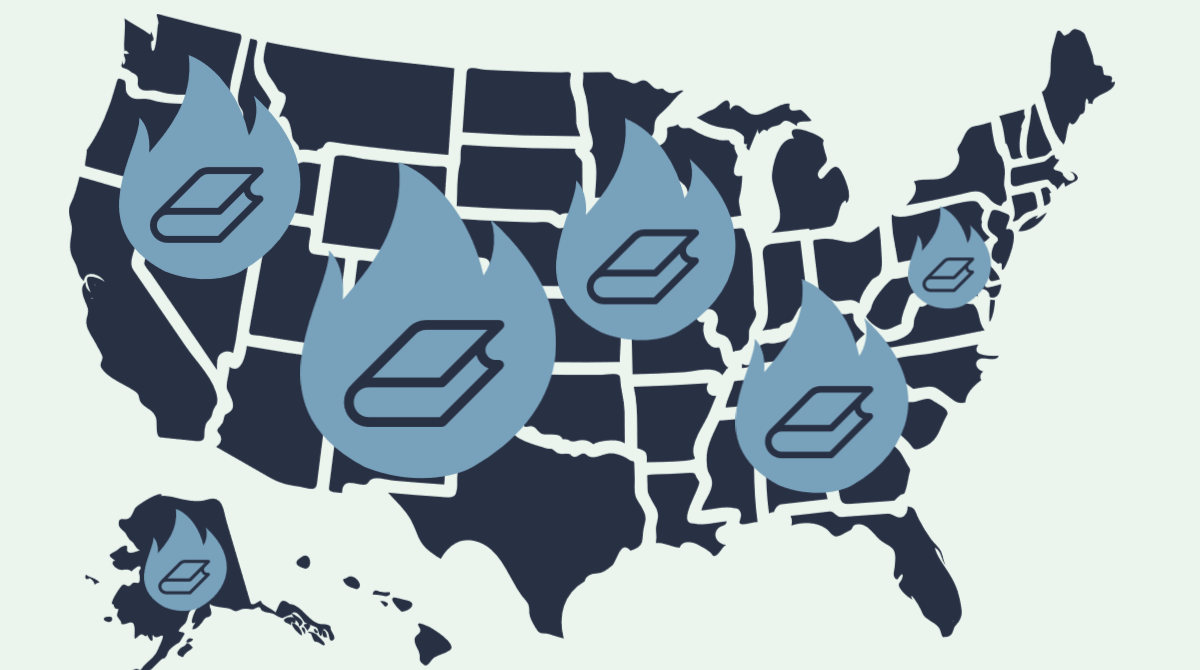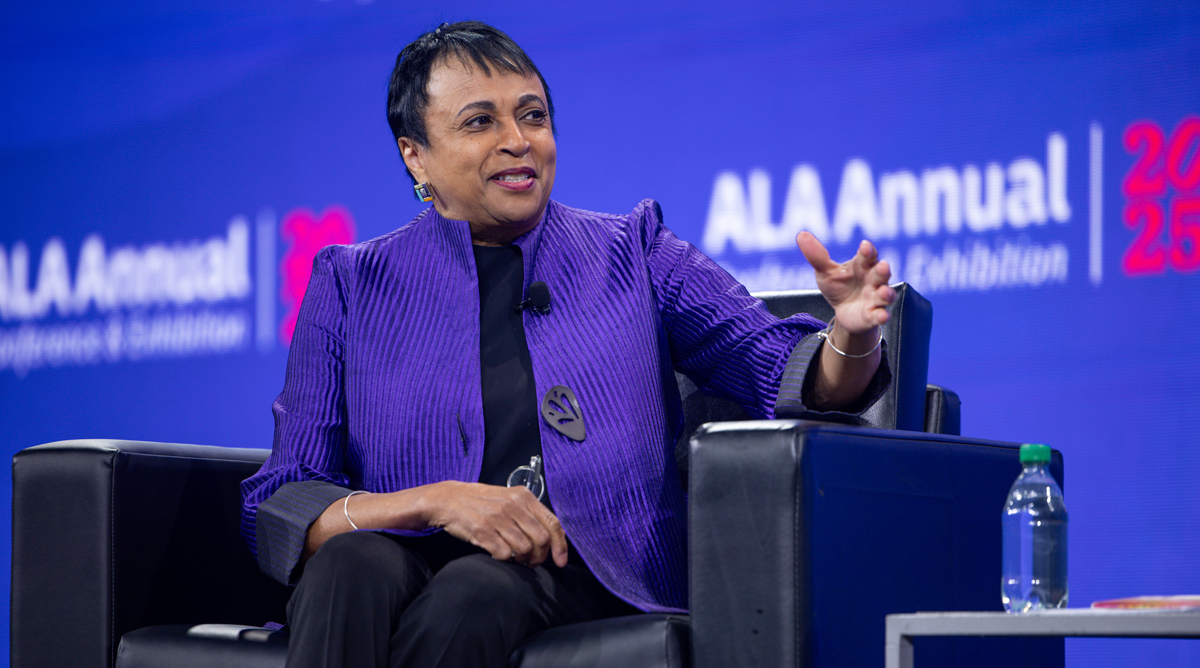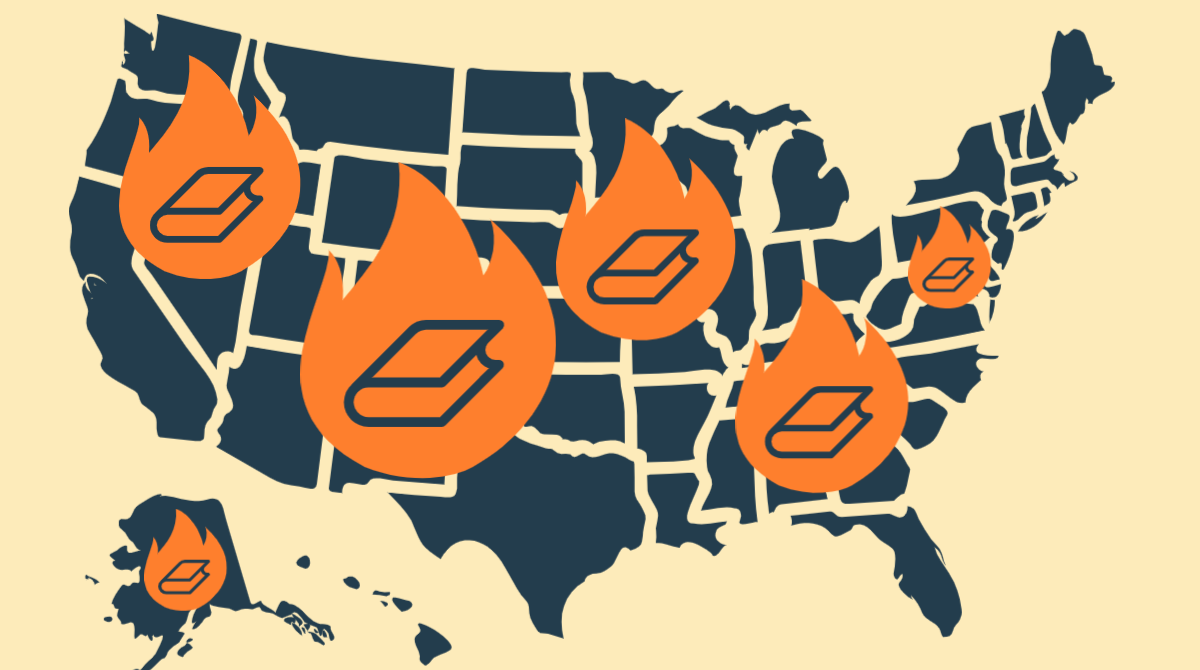Book challenges and bans are increasing in libraries and schools throughout the United States. To help spread the word about these activities and efforts to combat them by librarians, parents, students, politicians, and concerned citizens, I Love Libraries will frequently highlight several stories on the current crisis. This roundup includes news from Michigan, South Carolina, Missouri, and Kansas.
Book challenges shot down by Michigan school district
After a lengthy review process, 13 challenged books will stay on the shelves in the high school media center at St. Joseph (Mich.) Public Schools (SJPS), reports 94.9 WSJM. A committee made up of administrators, teachers, and district parents spent more than 120 hours reviewing the books and found that the titles “were suited to the wide range of interests reflecting the abilities and maturity levels of the students served,” according to St. Joseph Public Schools Assistant Superintendent Kristen Bawks.
“The committee examined and evaluated the materials as a whole, not on the basis of passages being pulled out of context,” Bawks said. “Criteria used for the evaluation and assessment were gleaned from the American Library Association and the Michigan benchmarks for school libraries in the 21st century.”
“The decision allows our students to have access to books that are really important for their growth [and] their development and preparation,” said SJPS Superintendent Jenny Fee. “The books in our collection are windows to the outside world. They allow our kids to see things they can’t see without that book and to understand things in our greater world. At the same time, they are mirrors … although the books might be disagreeable, or they might be uncomfortable, those are important things for our kids to be able to navigate through if they need to.”
Parents, school staff speak out about book banning movement across South Carolina
On November 7, the Horry County (S.C.) school board approved a recommendation to create a district-wide media advisory committee that would approve every book that comes into the district library. Every school will have its own media advisory board as well. The decision moved local parents and Horry County school district staff members to speak out against the revised policy on Monday, reports The Sun News.
“Having a school-level library media advisory committee that has to approve every book purchase is harmful to the betterment of the library collection and is a bit belittling to your school librarians who work very hard to know the student population as a whole and try to make the collection as strong as it can be,” said Meredith Richie, a school librarian at Blackwater Middle School.
Comment period opens on Missouri’s book ban proposal
Missouri libraries and the public at-large can now formally weigh in on an attempt by Missouri Secretary of State Jay Ashcroft to block public funding for libraries offering books that might “appeal to the sexual interests of minors,” reports the St. Louis Post Dispatch. The proposed rule would require Missouri’s 160 public libraries to adopt policies on the age-appropriateness of literature. Under the rule, anyone could challenge access to books, and libraries that violate the rules could lose state funding-more than $3.5 million in the coming fiscal year.
A 30-day comment period designed to let the public air concerns began Tuesday, November 15. The comments could cause the rule to be reworked or go before a panel of lawmakers who could vote to send the matter to the full Missouri House and Senate.
The proposal has received pushback from the public already. The Missouri Library Association called the rule “an infringement on the professional judgment of librarians, and an effort to further stoke division in the communities that libraries serve.”
A Kansas library’s lease is in jeopardy over an LGBTQ+ book
Controversies over books on racial, gender, and sexual identity may cost a small town in Kansas its library, reports the Topeka Capital-Journal.
In St. Marys, the local library’s refusal to remove Alex Gino’s book, Melissa, about a fourth grader who is grappling with her gender identity, has sharply divided the community of 2,700 people, and led to calls that the town should separate itself from Pottawatomie Wabaunsee Regional Library system.
The book prompted city commission members to propose adding a “morals clause” to the library’s lease that would require any books on “divisive matters,” including LGBTQ+ and racial issues, be removed. The effort was abandoned, but it did not stop debate over whether the city should open its own library and remove the regional branch, which is part of a system funded by taxpayers in Pottawatomie and Wabaunsee counties.
The idea has drawn pushback from library staff and members of the community.
“We spend our whole career trying to take care of everyone that comes in our door,” Pottawatomie Wabaunsee Regional Library Director Judith Cremer said at a November 15 meeting at St. Mary’s City Hall. “And you’re fighting a moral battle here, but we aren’t in the battle. It may be out there, but it’s not at the public library. If you’re at the library, find some of those books for me because I know they’re not there. We’re not putting anybody in danger, we never started a battle.”
Take action
Alarmed by the escalating attempts to censor books? Here are five steps you can take now to protect the freedom to read.
1. Follow news and social media in your community and state to keep apprised of organizations working to censor library or school materials.2. Show up for library workers at school or library board meetings and speak as a library advocate and community stakeholder who supports a parent’s right to restrict reading materials for their own child but not for all
3. Help provide a safety net for library professionals as they defend intellectual freedom in their communities by giving to the LeRoy C. Merritt Humanitarian Fund.
4. Educate friends, neighbors, and family members about censorship and how it harms communities. Share information from Banned Books Week 2021.
5. Join the Unite Against Book Bans movement to learn what you can do to defend the freedom to read in your community.




